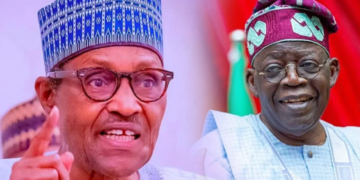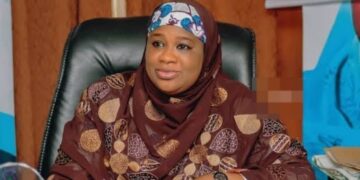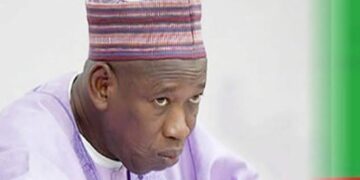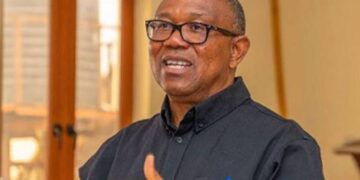The Tertiary Education Trust Fund has stated that it sponsored 23,938 lecturers for PhD programmes and 17,700 others for Master’s degrees in the last 13 years.
The Fund further stated between 2011 and 2024, it has sponsored estimated 18,766 lecturers for doctor of philosophy ,Ph.D, and over 14,159 others for Master’s degree programmes.
The statistics was announced by the Fund’s Executive Secretary Sunday Echono during an address of the convocation lecture of the Olabisi Onabanjo University at Ago-Iwoye in Ogun State.
Mr Echono said over 5,172 other lecturers got its sponsorship to overseas institutions for Ph.D. programmes and 3,541 for Master’s degrees in overseas tertiary institutions within the same period.
He said the Fund had also supported 120,441 lecturers in federal and states’ Colleges of Education under its teaching practice supervision programme.
Echono announced that an estimated 19,302 academic workers across tertiary institutions in the country were sponsored to foreign conferences while 4,516 non-academic staff of public tertiary institutions had also benefitted from the same sponsorship.
He added that no fewer than 25,940 academic workers were sponsored to attend local conferences within the country, while about 45,005 non-academic workers got sponsorship to attend local workshops in beneficiary institutions within the country.
He explained that the initiative was aimed at building the nation’s capacity, skills, and manpower need.
He put the cumulative number of academic and non-academic workers in public tertiary institutions the agency had sponsored to local and overseas conferences in the last 13 years at 94,763.
Speaking on the topic: TETFund and Educational Development in Nigeria: The History, Treasures and Future, Echono noted that the agency had recorded laudable achievements under its various intervention lines, including infrastructural projects across universities, polytechnics and colleges of education, ranging from Senate buildings, classrooms, and lecture theatres.
The TETFund executive secretary said there was a need for Nigeria to invest more in the education sector as well as sustain the funding of higher institutions across the country.
He stressed that the future of Nigeria’s educational development should be anchored on strengthening tertiary education for sustainable national development in a post-subsidy era.
According to him, for Nigeria’s educational institutions to be competitive, tertiary institutions should move its focus from the overarching philosophy to a more flexible and diversified one.
Echono decried the poor budgetary allocation to the education sector, warning that the sector was grossly insufficient to address the needs and standards required to provide a world-class tertiary education system.














































